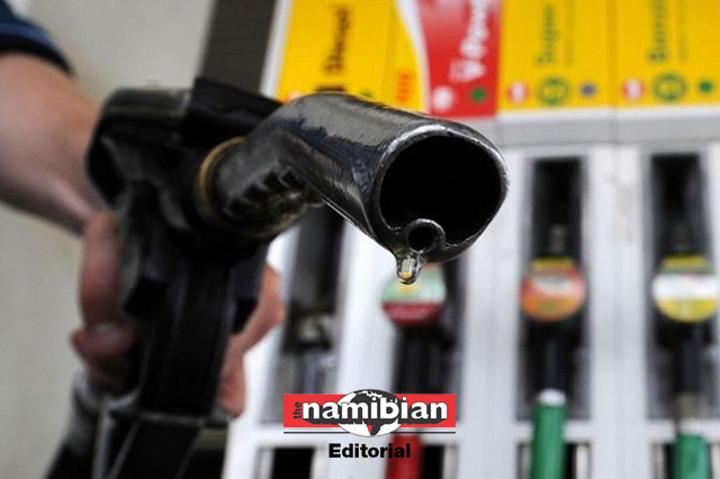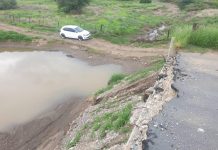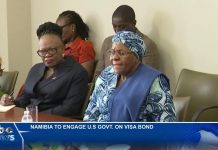Africa-Press – Namibia. DID YOU KNOW?
For every litre of fuel you buy, about 25% of the price goes towards taxes and charges that have no direct relation to the use of petroleum products.
At current rates, the public pays a premium of about N$4 that in essence has nothing to do with the actual value of the fuel. Imagine paying N$4 less or half to fill up your vehicle or hop into a taxi …
Last week, the Ministry of Mines and Energy announced yet another price increase for petroleum products such as petrol, diesel, house paraffin, jet fuel, and similar products.
For the most use of the fuels, the cheapest a member of the public can pay (as they say at the pump) is N$15,65 for petrol and N$15,58 for a litre of diesel.
Those are the prices set for Walvis Bay, because it’s the port of entry for fuel. The price of fuel has been increasing drastically for transport, mainly because of the ever-rising cost of fuel on the international market.
The more expensive fuel gets, the higher the cost of living, including food and movement. For Namibia, where employment is probably below 50%, the cost of transportation compounds poverty. The latest statistics show that more than 60% of Namibians struggle to find basic food.
By some accounts, poorer Namibians spend about 30% of their income on transportation. That’s probably because town planning has been designed for the wealthier members of society: the poor often live far from the places they derive their income from.
This is made worse by government leaders who seem to take the approach that charging more in taxes would solve societal problems – even in situations where data shows the opposite. In some instances, the burden on taxpayers is clearly because of the irresponsible and corrupt actions of government leaders.
One example is the construction of a costly fuel storage facility amounting to more than N$7 billion. It is fair to say the facility was always going to be the white elephant it is – one that drains taxpayers through a fuel user charge.
The facility, built at Walvis Bay, was controversial from the outset. It came at a time – around 2010 – when government leaders and their enabling cronies caught onto the fact that ‘infrastructure development’ was a source of self-enrichment at taxpayers’ expense.
Then finance minister Saara Kuugongelwa-Amadhila and permanent secretary Ericah Shafudah, her counterpart Kahijoro Kahuure, and the then permanent secretary of the National Planning Commission, Andries Leevi Hungamo, were among key people pushing for the building of the fuel storage on the pretext that it was crucial for ‘strategic’ risks Namibia may face.
The job was given to a joint venture called CRB, co-owned by China Harbour Engineering Company and Babyface Civils (Pty) Limited, owned by the darling of government tenders, Vaino Nghipondoka.
In around 2010, the cost was mooted at N$900 million. When construction got underway in 2013, the cost ballooned to N$3,7 billion, escalating to over N$5 billion within a couple of years, before leaving taxpayers a bill of more than N$7 billion.
At the time, Kuugongelwa-Amadhila downplayed the impending burden on taxpayers, saying it amounted to “some cents that do not affect the public’s affordability of fuel”.
The fuel levy for a project that was never needed is now about N$1 for every litre of fuel. So much for “some cents”. If a dollar per litre is cheap change, we can only imagine that Kuugongelwa-Amadhila lives in another world.
Other charges fuel users may consider unduly burdensome is a road-user fee for the Road Fund Administration (N$1,48), an unexplained ‘fuel tax’ (N$1,50) to the Motor Vehicle Accident Fund, customs taxes, a Sacu levy, a Road Safety Secretariat levy, and an equalisation fee – in addition to dealer and industry margins.
Namibians are paying a heavy price for reckless decisions taken for the benefit of a clique of leaders. With fuel prices going through the roof, it is about time the government reviews the multitude of fees that only make life harder – especially for poorer Namibians.
For More News And Analysis About Namibia Follow Africa-Press






